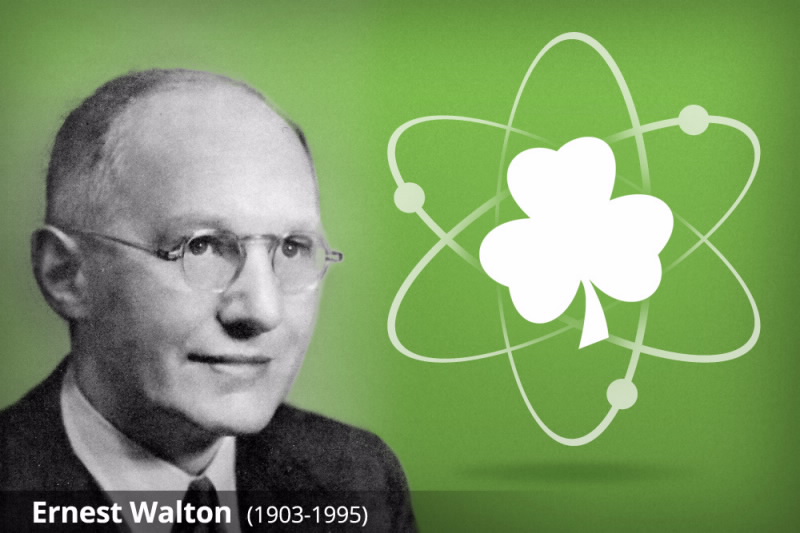In celebration of St Patrick’s Day, we look at the life of an Irishman who, collaborating with an Englishman, was the first person to artificially ‘smash an atom’.
 |
Ernest Walton (1903-1995) was one of the most respected scientists of the 20th century, thus maintaining a tradition in Ireland that reached back to the seventeenth century. In 1932 he and his co-worker John Cockcroft were the first to split the atom in the Cavendish Laboratory in Cambridge, which was the leading research centre in the world in atomic and nuclear physics research at that time.
Walton had enrolled as a PhD. research student following his remarkable achievements as an undergraduate in Trinity College Dublin. The experiment had several important outcomes including the verification of Einstein’s famous equation relating mass and energy, E=mc2.
Walton was at the birth of modern physics, as carried out in CERN and elsewhere throughout the world. This new experimental capability greatly enhanced scientific research in many fields of endeavor including studies into the origins of the Universe itself.
Walton was at the birth of modern physics, as carried out in CERN and elsewhere throughout the world. This new experimental capability greatly enhanced scientific research in many fields of endeavor including studies into the origins of the Universe itself.
Walton and Cockcroft’s invention of a particle accelerator capable of splitting the atom for the first time earned them the Nobel Prize in Physics in 1951. To date, Walton remains Ireland’s only Nobel Prize winner in the sciences.
The technique of particle acceleration they developed is the forerunner of the sophisticated accelerators in use today at ANSTO’s Centre for Accelerator Science and Australian Synchrotron.
To read more about Irish physicists: Quantum Generations: A History of Physics in the 20th century. Helen Kragh Princeton University Press 1999
Published: 17/03/2015


